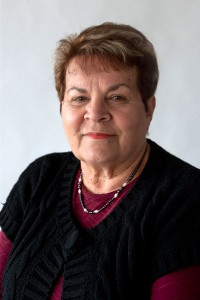- Entry type: Person
- Entry ID: AWE5815
Gordon, Sue
- AM, Hon .Dlitt (WA)

- Occupation Commissioner, Justice of the Peace, Lawyer, Magistrate, Public servant
Summary
Dr Sue Gordon AM has achieved many ‘firsts’ during her career. In 1986, she was the first Aboriginal person to head a government department in Western Australia, as Commissioner for Aboriginal Planning; in 1988 she was WA’s first Aboriginal magistrate and first full-time children’s court magistrate; and in 1990 she was one of five commissioners appointed by federal Labor minister Gerry Hand to the first board of the Aboriginal and Torres Strait Islander Commission (ATSIC).
Gordon has been appointed by state and federal governments, on both sides of politics, to various positions. In 2002 she was appointed by the Premier of Western Australia, Geoff Gallop, to head an inquiry into family violence and child abuse in Western Australian Aboriginal communities. One outcome of the Gordon Inquiry was closure of the controversial Swan Valley Noongar Camp. In 2004, she was appointed Chair of the new National Indigenous Council, an advisory body to the Federal Government, following the winding down of ATSIC. She chaired the Northern Territory Emergency Response Taskforce from June 2007 to June 2008 before retiring from the bench in September 2008.
In retirement, Gordon has remained very active in a variety of organisations. Currently (2016) president of the Graham (Polly) Farmer Foundation and the Police and Community Youth Centres Federation of WA (PCYC) Board, to name only a couple of her appointments, her special long term project is Sister Kate’s Aged Persons Project, supported by the Indigenous Land Corporation and Aboriginal Hostels Limited.
Gordon received the Order of Australia award in 1993 as acknowledgement of her work with Aboriginal people and community affairs. In 2003 she received an Honorary Degree of Doctor of Letters (Hon. DLitt) from the University of Western Australia, the same year she was awarded the ‘Centenary Medal’ for service to the community, particularly the Aboriginal community.
Sue Gordon was interviewed by Nikki Henningham for the Trailblazing Women and the Law Oral History Project. For details of the interview see the National Library of AustraliaCATALOGUE RECORD.
Details
Born at Belele Station, near Meekatharra, Western Australia in 1943, Sue Gordon was separated from her mother and family at the age of four and raised at Sister Kate’s home in Queens Park, Western Australia. After leaving school, she joined the army as a full-time soldier. Between 1961 and 1964 she was a full-time member of the Women’s Royal Australian Army Corps (WRAAC) based mostly in the eastern states, where she worked as a cipher operator. After leaving the army she worked in various administrative positions around Australia, including as Teltype operator at Carnarvon Tracking Station. This led to more administrative work in the Pilbara region, where she worked mostly in Aboriginal Affairs with both urban and traditional people. In 1977 she was awarded a National Aboriginal Overseas Study Award to survey employment programs with a number of Native American communities in the United States.
Gordon moved back to Perth when her eldest son was about to start university and her second one was in year 12, taking on the role of Commissioner for Aboriginal Planning in 1986, and in so doing, becoming the first Aboriginal person to head a government department in Western Australia. In 1988, despite her lack of formal legal training, she was appointed the first full-time and first Aboriginal magistrate in the state’s history. Appointed to the Perth Children’s Court, a court of limited jurisdiction served by lay, as well a legally trained, magistrates, Gordon served for twenty years before mandatory retirement in 2008 at the age of 65.
While working full time at the court, Gordon completed a law degree part-time. She started it when she was 50, it took eight years, and there were times when she wondered what she had let herself in for. Fortunately, her two sons did not allow her to give up, reminding her that there was ‘a rule at our house since we were kids, ‘If you started, you have to finish it.”
Completing the degree gave her ‘the polish that she needed’. Besides, the discipline of the law reinforced a way of life for her that she had always valued. ‘I had discipline in my early life…I had discipline in the army and discipline in Aboriginal Affairs …I’d come from a disciplined background. I think that’s what I really appreciated at the court,’ she says. What’s more, it’s a place where ‘every decision is going to impact on somebody.’
Archival resources
Digital resources
Published resources
-
Newspaper Article
- A force for her people, Shaw, Meaghan, 2004, http://www.theage.com.au/news/National/A-force-for-her-people/2004/12/03/1101923331526.html
-
Resource Section
- My Three Families, Russell, Todd (Director), 2013, http://www.sbs.com.au/ondemand/video/253256771612/from-the-western-frontier-my-three-families
-
Site Exhibition
- Australian Women Lawyers as Active Citizens, http://www.womenaustralia.info/lawyers/biogs/AWE5815b.htm